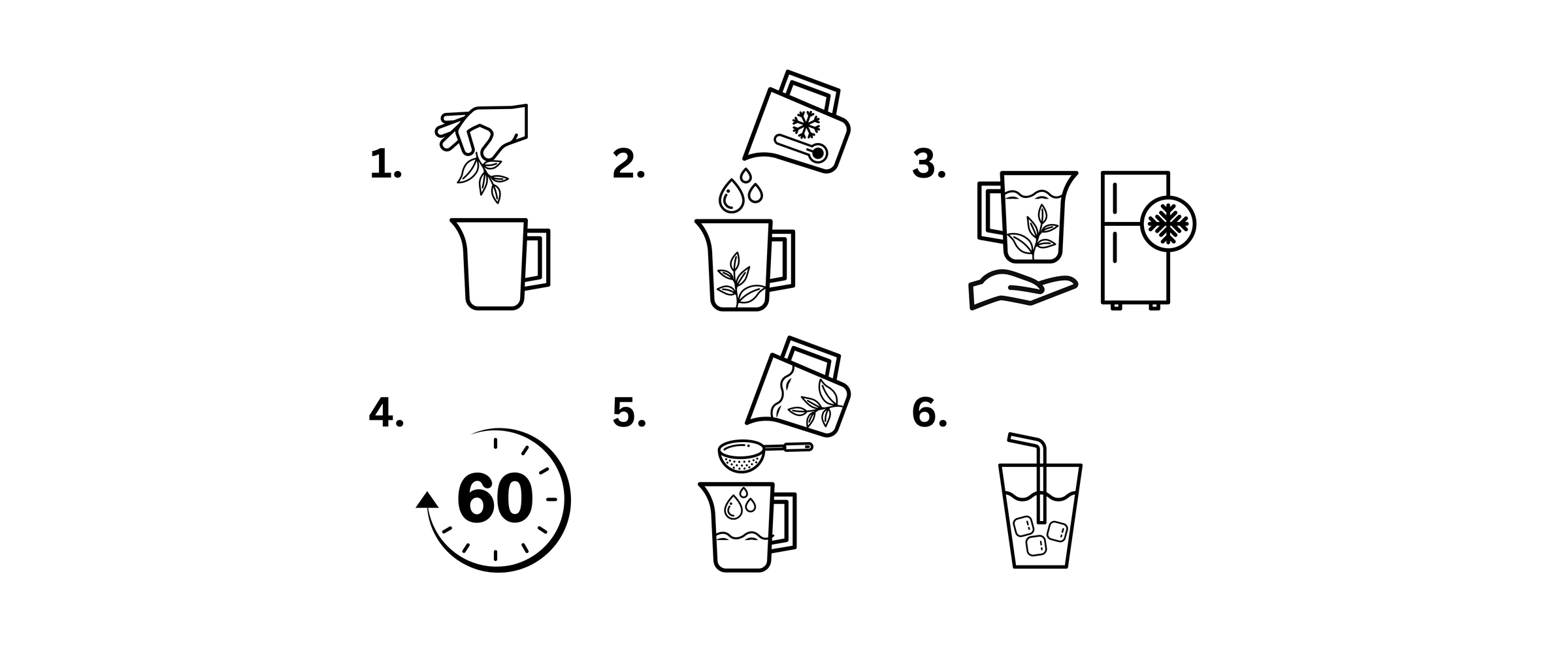Simple and delicious
Drinking cold brew tea is a great alternative for those looking to replace juice or soda, whether it's summer or not. The cold brew process is relatively simple and results in a wonderful iced tea that is both refreshing and delicious. The tea leaves, which contain many flavor compounds and essential substances, are placed in cold water and extracted at a slow rate.
When brewing tea in hot water, the time difference between the first and last bonds released is very small. This makes it extremely important to be able to stop the brewing (i.e. extraction) at the right time to achieve the flavor profile you are looking for. With cold brewing, the time difference between the first and last bonds released is much greater, which significantly simplifies the ability to achieve your desired flavor profile.

This is how you do
YOU NEED
2 jugs
1 strainer
1 liter of cold water
45-50 g loose tea
INSTRUCTIONS
1. Pour the tea leaves into one of the empty pitchers.
2. Let the tea leaves lie loose and brew freely in the water.
3. Place the pitcher in the refrigerator for about 60–90 minutes.
4. Taste. If you prefer, you can let the tea continue to brew.
5. Take the pitcher out of the refrigerator and strain the tea into the other pitcher.
6. Pour into glasses with ice and possibly fruit. Enjoy!
Your cold brew is now ready to quench your thirst and can be stored in the refrigerator for about 3-4 days with the lid on.
Adapt to taste
The later flavor compounds released into the tea tend to be tannins, the bitter notes. An example is catechins - the antioxidants in green tea, which in addition to their health benefits also contribute to the bitter/astringent notes in the tea. By cold brewing the tea for a shorter time, you therefore have the opportunity to dampen the bitterness and reduce the harshness in it. Conversely, you can also choose to brew the tea for a longer time and thus get a stronger tea with more of theanine, umami and the vegetable notes you want. You can also get more of the fresh top notes without being burdened with bitterness and harshness. This is why green teas are mainly used in cold brews.














